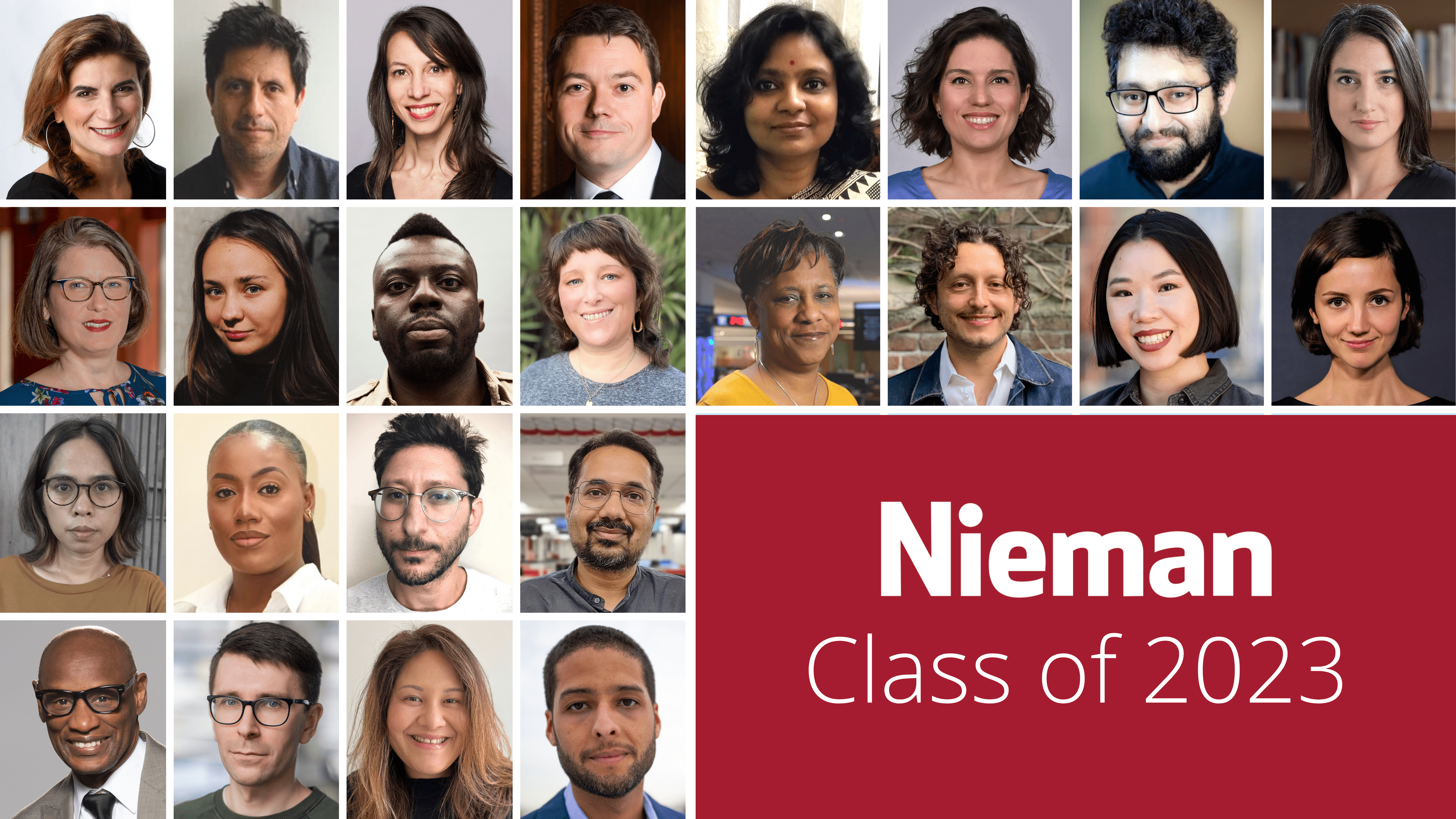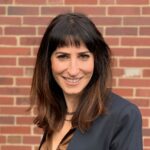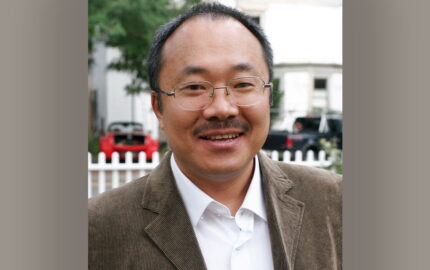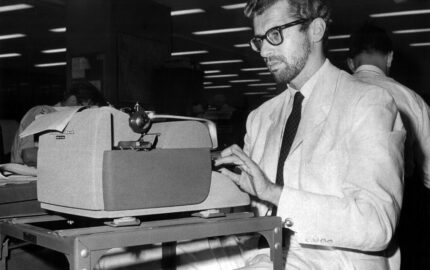CAMBRIDGE, Mass. — The Nieman Foundation for Journalism has selected 24 journalists from around the world for a year of study at Harvard University. The new Nieman Fellows will work on projects about government suppression of journalism, controlling misinformation, climate change, migration and more.
The Nieman class of 2023 includes the foundation’s first Cambodian journalist, as well as others who report on Ukraine, Russia, Afghanistan, Turkey, Myanmar, Bangladesh, India, Mexico, Nigeria and Hong Kong — places where press freedom is tightly restricted or under attack and in dire need of external support.
The fellows, who will begin two semesters of studies this fall, represent a broad array of media outlets, from a young start-up reporting on gender to legacy print and broadcast newsrooms. The group includes correspondents, an investigative journalist, a CEO, anchors, editors, a photojournalist, a producer and newsroom leaders. They cover race, voting rights, health care, politics, inequality, the environment, travel, sports and other issues.
“These remarkable journalists are doing essential work, often in constrained or hostile circumstances, and they are probing industry conventions in need of reimagining,” said Ann Marie Lipinski, curator of the Nieman Foundation. “I am honored to welcome them to Harvard and to support their research and innovation. This fellowship has enhanced the work of journalists across the globe, helped to strengthen democracies and also contributed greatly to the Harvard community. We look forward to learning from this new class.”
Since 1938, the Nieman Foundation has selected more than 1,700 journalists from 100 countries for fellowships at Harvard. In addition to taking classes at the university, fellows participate in Nieman seminars, workshops and master classes, and collaborate with Harvard scholars and leading innovators in the Cambridge area.
The 2023 Nieman Fellows and their study plans:
Fahim Abed, a former local reporter for The New York Times in Kabul, Afghanistan, who was evacuated from the country after the Taliban takeover in 2021, will study migration and American history with a focus on Asian migrants to the U.S. and the integration challenges they face.
@fahimabed
Adefemi Akinsanya, an international correspondent and anchor at Arise News in Lagos, Nigeria, will study how deteriorating media freedom in her country is connected to the #EndSARS protests against police brutality. She will also work on building a news management platform to expand journalism jobs and help reporters tell stories of the marginalized.
@femmefemi
Dotun Akintoye, a staff writer at ESPN, will research the war on terror and the relationship between political violence and sports, examining such events as the 1972 Munich Games, the 1996 Atlanta Games, the 2008 Sri Lankan Marathon and the 2013 Boston Marathon.
@YNGNKL
Sheikh Sabiha Alam, a senior reporter who covers crime and other stories for the daily Prothom Alo newspaper in Bangladesh, will study human rights atrocities and forced migration.
@SSabihaAlam
Amanda Becker, Washington correspondent for The 19th, a nonprofit newsroom reporting on gender, politics and policy, will study the news habits of women to understand gender differences and susceptibility to misinformation and participation in antidemocratic movements.
@AmandaBecker
Deborah Berry, a national correspondent for USA Today covering civil rights, voting rights and politics, will study the pivotal role African American women have played in local and national politics from the civil rights movement to the Black Lives Matter movement, with a focus on voter registration and the pursuit of elected office.
@dberrygannett
Olga Churakova, a Moscow-based independent journalist and host of the podcast “Hi, You’re a Foreign Agent,” will study the predicament of individual journalists maligned as foreign agents or public enemies by governments attempting to restrict their funding, reporting and impact.
Ashish Dikshit, editor of BBC News Marathi in New Delhi, will study methods for effectively diversifying newsrooms in the country to be more inclusive of caste, religion, gender and sexuality, as well as ways to enhance coverage of underprivileged communities.
@DikshitAshish
Pinar Ersoy, editorial lead for BBC Monitoring’s team in Istanbul, will examine successful newsroom innovation and transformation to identify solutions that can enhance quality journalism globally.
Darryl Fears, a staff writer who covers climate and environmental justice for The Washington Post, will study urban planning and public health to determine how historic federal and local zoning of industrial pollution sites intersects with poor health outcomes in communities of color.
@bydarrylfears
Danny Fenster, editor-at-large for Frontier Myanmar, an investigative news magazine, will study how journalists in exile are using emerging digital tools to continue reporting on repressive regimes, as well as the impact of Western foreign policy responses to these governments on reporters’ ability to continue working. Fenster was imprisoned by Myanmar’s junta for nearly six months in 2021 for his reporting on military-linked businesses.
@dannyfenster
Elisabeth Goodridge, the deputy travel editor for The New York Times, will reimagine travel writing and reporting that is responsive to the environmental and societal effects of travel on the warming planet.
@ElisGoodridge
Angie Drobnic Holan, the editor-in-chief of the Poynter Institute’s Pulitzer Prize-winning fact-checking website PolitiFact, will study whether journalism can have a causal effect on the preservation of democracy and, if so, how.
@AngieHolan
Renée Kaplan, head of digital editorial development at the Financial Times in London, will examine a new model of decentralized journalism focused on serving the needs of future audiences that are more diverse, technologically savvy, content-deluged and institutionally independent.
@rkapkap
Natasha Khan, an Asia correspondent for The Wall Street Journal based in Hong Kong, will study the acceleration of global inequality during the pandemic and how media organizations can advance coverage of stories from developing regions.
@natashakhanhk
Tanya Kozyreva, an investigative reporter based in Kyiv, Ukraine, will identify the U.S. regulatory shortfalls that allow criminals to use cryptocurrencies to conceal and launder billions of dollars, as well as the impact of these crimes on working people in the U.S. and overseas.
@TanyaKozyreva
Romy Neumark, creator and host of the daily television program “Night News” and host of a radio program at Kan, the Israeli Public Broadcasting Corporation, will work on developing a large-scale training program for journalists that emphasizes professional newsroom culture and inclusion.
@romy1n
Bopha Phorn, a journalist based in Phnom Penh, Cambodia, will research how independent media organizations operating under oppressive regimes can collaborate to share information and resources to protect each other and elevate important stories.
@bophaphorn
Taras Prokopyshyn, publisher and CEO of The Ukrainians Media in Lviv, Ukraine, will study how to build sustainable independent media companies that provide high-quality journalism in developing countries.
@ProkopyshynUA
Kristofer Ríos, a director, multimedia journalist and producer with Muck Media, will study U.S. media coverage of immigration and the role of empathy in news reporting. He will create a framework of standards and practices for reporting on traditionally marginalized communities.
@kristoferrios
Moises Saman, a Spanish-American photojournalist and a member of Magnum Photos, plans to explore how the visual documentation of armed conflict is consumed, interpreted and, with the use of new technologies, manipulated to shape narratives.
Twitter: @moises_saman
Instagram: @moisessaman
Alex Smith, a health care reporter for the Kansas City NPR station KCUR and a national NPR-Kaiser Health News reporting partner, will study how journalists can effectively address health misinformation without causing it to spread further.
@AlexSmithKCUR
Jorge Valencia, the Mexico City-based Latin America correspondent for The World, will study narrative portrayals of migrants, with a focus on how news organizations can better represent them.
@jorgeavalencia
In addition to the new class members, Rebecca Richman Cohen will spend three months as a Nieman Visiting Fellow. A documentary filmmaker, founder of Racing Horse Productions and lecturer at Harvard Law School, she will look at the crisis of mass incarceration from various social science perspectives.
@rebeccaracing
The fellows were selected by Nieman curator Ann Marie Lipinski and Nieman deputy curator James Geary with assistance from 2021 Nieman Fellow Austin Bogues, commentary editor at USA Today.
The Nieman Foundation for Journalism at Harvard educates leaders in journalism, promotes innovation and leadership initiatives and elevates the standards of the industry. In addition to its fellowship program, the foundation publishes Nieman Reports, a website and print magazine covering thought leadership in journalism; Nieman Lab, a website reporting on the future of news, innovation and best practices in the digital media age; and Nieman Storyboard, a website showcasing exceptional narrative journalism and exploring the future of nonfiction storytelling.




